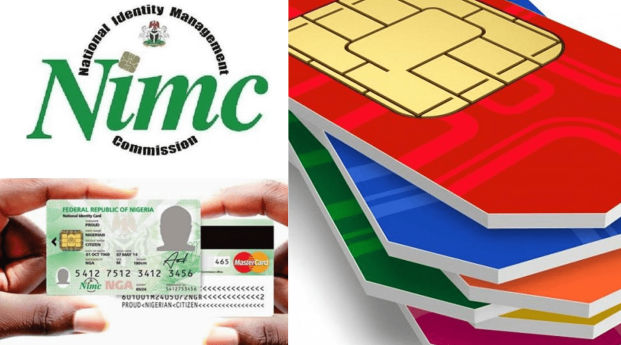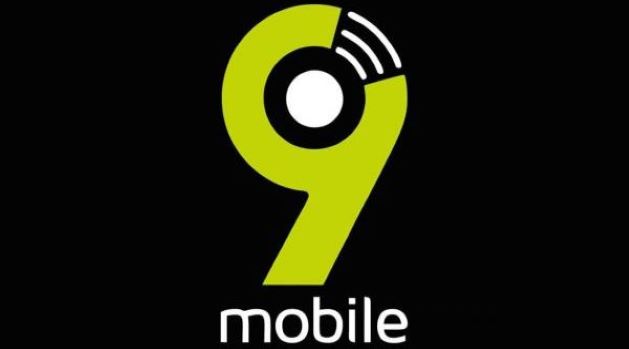Telecom
Telcos Say 30m Lines not Properly Linked to NINs

Gbenga Adebayo, chairman, Association of Licensed Telecom Operators of Nigeria (ALTON), has disclosed that over 30 million lines have not been properly linked to a National Identification Number (NIN).

Gbenga Adebayo, chairman. ALTON
These lines are mainly in car trackers, MiFi units, WiFi devices, and Point of Sale (PoS) machines. He said this during a recent interview with News Central on the back of recent chaos caused by the unblocking of lines not connected to their NINs.
“The numbers are staggering,” Adebayo, the president of the umbrella body of telcos, said. “We are looking at potentially over 30 million SIM cards, including those in various digital devices, that have not been properly linked to the NIN. Many of these SIMS are in car trackers, POS machines, MiFis, WiFis, and many other devices that use SIMs to operate.”
Over the weekend, telcos began barring phone lines not linked with NINs days before the Nigerian Communications Commission (NCC)’s July 31, 2024 deadline.
Since February 2024, telcos have implemented a phased disconnection of lines in compliance with an NCC directive. At the end of 2023, the regulator asked telcos to disconnect lines that had not been successfully linked with an NIN across three phases, ending July 31, 2024.
About 50 million lines have been impacted by earlier rounds of disconnections. Nigeria has 219.01 million connected lines as of March 2024.
Some subscribers affected by this round of disconnections claimed that their SIMs and NIN had been linked. According to Adebayo, these subscribers were disconnected because of discrepancies in records between telecom operators and the National Identity Management Commission (NIMC).
“There are instances where individuals provided their NINs, but the information did not match our records,” Adebayo noted.
“These discrepancies must be resolved at service centers to ensure proper verification.”
While the timing of the disconnections coincided with nationwide protests, Adebayo emphasised that there was no link as the action had begun long before the protests.
“Unfortunately, the disconnection coincided with the planned protests, but it had nothing to do with stifling communication,” he said. “We are guided by our social contract with subscribers and provide services on a non-discriminatory basis.”
The ALTON boss further highlighted the role of accurate data in building a reliable national database. He stressed the importance of individuals providing truthful and consistent information during registration to avoid future complications.
“To have a reliable and equipped national database, all of us must contribute accurate information,” Adebayo urged. “This database can only be as reliable as the information provided by the public.”
Public outcry over the implementation of the last phase of disconnection eventually made the NCC extend its deadline to a yet-to-be-set date.
“The consumer is our priority, therefore, considering the challenges the blockages have caused, the commission has directed all operators to reactivate all lines that were disconnected over the weekend… Reactivated consumers are to note that this is for a limited period to allow them to properly link their NIN to their SIM,” the commission said.
Credit: Businessday
Telecom
20 Years of Digital Leadership: Layer3’s Legacy and the Road Ahead

In 2005, few could have predicted that a small Nigerian technology company would evolve into one of Africa’s most trusted IT infrastructure, cloud, and cybersecurity brands. Today, Layer3 celebrates 20 years of doing just that, transforming IT from a technical necessity into a strategic advantage for enterprises, governments, and innovators across the continent.

The Foundation: Trust Earned, Not Assumed
The Layer3 story begins where every great enterprise story should, with trust.
Over two decades, Layer3 has earned a reputation for reliability in a sector defined by change. Across multiple industries: finance, energy, health, government, and telco, clients have turned to Layer3 not only for solutions, but for peace of mind.
As Layer3’s CEO, Oyaje Idoko, succinctly puts it, “Uptime, SLAs, fast response, fixing issues permanently, that’s what real IT service means, that’s what we built Layer3 to deliver. However, it’s not just about systems, it’s about people. Our team is the backbone of that promise: engineers, support staff, and every Layeron who shows up every day to make excellence a standard, not an exception.”
From deploying core network infrastructure, distributed branch networks, and disaster recovery solutions for banks, telcos, and large enterprises, to ensuring uninterrupted cloud infrastructure for Africa’s fastest-growing startups, Layer3 has become synonymous with business continuity at enterprise scale.
The Powerhouse: Innovation Without Compromise
While trust laid the foundation, innovation became the fuel. In 2019, Layer3 launched Layer3Cloud, Nigeria’s first locally owned enterprise-grade cloud platform. At the time, many questioned whether Nigerian businesses were ready to migrate from on-premise infrastructure or to host their data locally. Five years later, Layer3Cloud is powering banks, fintechs, large enterprises, and governments, delivering secure, elastic, and scalable compute power at home.
Beyond cloud, Layer3 has continued to evolve with the times:
- Fiber infrastructure rollouts that connect enterprises and residences to the future.
- Enterprise-grade zero-trust cybersecurity frameworks deployed across financial and public institutions.
- AI-driven and software-defined network solutions through partnerships with global OEMs like Juniper Networks, HPE, Cisco, and Fortinet.
Behind every innovation is a team of engineers whose brilliance is matched only by their resilience.
Reflecting on Layer3’s journey, Oyaje Idoko highlighted the often-overlooked role of technical talent, “Behind every seamless connection and resolved incident is a network engineer who’s worked through the night, responded to a 3am call, and made sure systems stay up when it matters most. Shake their hand and ask them about routing, about switching. These are the unsung heroes powering Africa’s digital future. Indeed, Layer3’s engineers don’t just build networks, they build nations.”
The Shield: Defending Africa’s Digital Economy
In today’s world, trust and innovation mean nothing without security and at Layer3, cybersecurity isn’t just a service, it’s a mindset.
“We’ve built an elite team of cyber defenders, and we’re still growing. We defend banks, telcos, governments and organizations of all types and sizes. If you’re in Africa and serious about protecting your business, you should be speaking to Layer3”, says Godwin Michaels, Layer3 CTO.
Layer3 is at the frontline of defending Africa’s most sensitive data. From real-time threat intelligence and incident response to managed SIEM and penetration testing, the company is quietly but forcefully defending Nigeria’s digital borders.
This commitment has earned Layer3 the loyalty of institutions where downtime isn’t just an inconvenience, it’s a national risk.
Layer3 has also been recognized multiple times over the years as a leading player in the IT space across Africa.
Two Decades of Impact: Highlights at a Glance
Year Milestone
2005 Layer3 founded in Abuja, Nigeria as a Virtual Network Operator
2007 Expanded to Lagos and rolled out last-mile fiber infrastructure across Abuja and Lagos
2008 Expanded into enterprise networking and managed services
2015 Launched cybersecurity division
2019 Launched Layer3Cloud, Nigeria’s premier local cloud platform
2021 Rolled out Layer3Fiber, an FTTH service expanding broadband to homes and small businesses
2025 Celebrates 20 years with thousands of projects completed across sub-Saharan Africa and counting
Shaping Africa’s Digital Future: The Road Ahead for Layer3
As Layer3 enters its third decade, its sights are set higher: expansion into new African markets, hybrid cloud deployments, AI-driven network infrastructure, digital public infrastructure solutions, and most importantly, developing the next generation of African tech talent.
According to Oyaje, “Layer3 was built on the belief that African businesses deserve world-class technology delivered by people who understand the terrain. That vision hasn’t changed, it’s only gotten bigger.”
From a startup with a dream to a national asset securing the future, Layer3 has become more than a technology company, it’s a legacy of excellence.
To our clients, partners, regulators, and Layerons, thank you for 20 years of belief.
Here’s to 20 more years of trust, innovation, and impact.
We are Layer3. We deliver peace of mind.
Telecom
Y’ello Care’s 21-Day Campaign Bridges Digital Divide for Thousands Nationwide

In a nation where the Information and Communications Technology (ICT) sector contributed a 19.78% to Nigeria’s real Gross Domestic Product (GDP) in Q2 2024, the recently concluded Y’ello Care initiative, which ran from June 1 to June 21 2025, has demonstrated how digital tools can transform lives at the grassroots level.

This year’s program, themed ‘Connecting at the Roots,’ directly aligns with Nigeria’s National Digital Economy Policy and Strategy 2020-2030, which seeks to leverage digital technology for comprehensive economic growth.
Y’ello Care’s focused efforts are crucial in bridging the existing digital divide, especially given that while mobile phone penetration has reached 84%, equitable access and digital literacy remain key challenges for many of Nigeria’s over 163 million internet users.
At the core of the employee volunteerism initiative was a comprehensive approach to digital inclusion. The program delivered extensive training and empowerment sessions covering vital areas such as digital literacy, artificial intelligence, financial inclusion, content creation and monetisation, personal branding and employability.
A significant component of the initiative involved the donation of essential technological resources. Over 86 desktop computers and 133 learning devices were distributed, providing tangible tools for education and skill development.
Furthermore, the deployment of over 400 connectivity tools, including routers and MiFi devices, has significantly enhanced internet access, laying the groundwork for sustainable digital engagement.
To complement these efforts, thousands of branded kits, educational supplies, and business support items were also distributed, directly aiding beneficiaries in their learning and entrepreneurial pursuits.
These tangible contributions directly address the infrastructure gaps that hinder digital inclusion, particularly in underserved communities.
Solar power infrastructure was installed in selected schools, ensuring sustainable access to Information and Communication Technology (ICT) even in areas with unreliable power grids.
The impact of this 21-day intensive program is evident in its impressive reach. The initiative directly benefited over 8,932 individuals across diverse communities, schools, and health centres. The Medical Official of Ikoyi/Obalende Local Council Development Area (one of the beneficiaries of the Y’ello Care programme), Dr Akintayo Akintoba Adebayo, expressed profound admiration for the recent donation by the company. He said he was “speechless” at the positive developments unfolding daily in the area and noted that the donated items were essential medical supplies poised to significantly enhance healthcare delivery in the local government.
This undertaking was made possible by the dedication of over 1,145 staff and volunteer facilitators, who committed more than 3,947 volunteer hours across 18 divisions and national sessions.
Their collective efforts underscore the power of human connection in driving digital transformation and creating lasting positive change.
In conclusion, the Y’ello Care initiative stands as a powerful testament to the potential of collaborative efforts in addressing societal challenges. By combining technological innovation with dedicated human support, this and similar programmes bridge digital divides and empower countless individuals, fostering a more inclusive and digitally literate society from the ground up.
Telecom
Court to Decides on 9Mobile Ownership Tussle September 24

Federal High Court in Abuja has fixed September 24 to rule on several applications in the case of Abubakar Ismaila Isa, a businessman, who claims that his 43 million shares were allegedly transferred to Emerging Markets Telecommunication Services Limited, operating under the trade name 9mobile, without his consent.

The matter before Justice Mohammed Umar on Wednesday, was filed by Isa’s legal team led by Femi Atteh, SAN, in suit number FHC/ABJ/CS/1971/2024.
The plaintiff seeks an order declaring him the “beneficial owner of the 43,000,000 (forty-three million) ordinary shares held in trust for him by the 1st Defendant (Seltrix Limited) in the capital of the 3rd Defendant (Teleology Nigeria Limited).”
He accused Seltrix Limited of purportedly transferring the said shares to 9mobile without his consent, resulting in the alleged illegal change of control of 9mobile to LH Telecommunication Limited by the Corporate Affairs Commission and Nigerian Communications Commission.
Joined as defendants in the suit are Seltrix Limited, Hayatu Hassan Hadeija, Teleology Nigeria Limited, Mohammed Edewor, Emerging Markets Telecommunications Limited, CAC, NCC, LH Telecommunication Limited and General Theophilus Yakubu Danjuma (Rtd) (first to ninth defendants).
A counter-affidavit sworn to and filed on behalf of Seltrix Limited, Hadejia had described the plaintiff’s application as a reckless abuse of the court process.
He urged the court to dismiss the application and award substantial costs against the plaintiff.
He also demanded concrete evidence of any trusteeship arrangement involving him or Seltrix Limited concerning the alleged N43 million ordinary shares in the capital of the third defendant, Teleology Nigeria Limited, or any matter related to the suit.
Hadejia stated that the plaintiff’s motion, dated 27 January but filed on 28 January, was a fabrication designed to mislead the court.
At the resumed hearing, Michael Aôndoakaa, SAN, counsel for Teleology, 9mobile, and others, drew the court’s attention to his preliminary objections, asking the court to strike out the case for “being statute-barred” as it was filed out of the stipulated time required.

 E-Financial3 days ago
E-Financial3 days agoCourt Affirms NIBSS Authority to Manage BVN

 Telecom3 days ago
Telecom3 days agoMTN, 9mobile Commence Ground-breaking National Infrastructure Partnership

 E-Financial3 days ago
E-Financial3 days agoNigerian Banks End Years of Embargo, Resume Intl Transactions on Naira Cards

 E-Business3 days ago
E-Business3 days agoNIMC Says NIN Services Back Online

 General News3 days ago
General News3 days agoCybervergent Selected as World Economic Forum’s 2025 Technology Pioneer Company

 Telecom3 days ago
Telecom3 days agoKarl Toriola Champions Digital Education for Employability @Sigma Club Lecture

 E-Financial3 days ago
E-Financial3 days agoFlutterwave Secures 20 more US Money Transmitter Licences

 E-Business3 days ago
E-Business3 days agoReport Reveals African Organizations Dangerously Overestimating Cyber defences

























